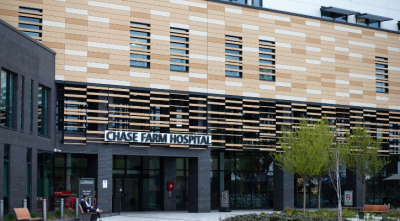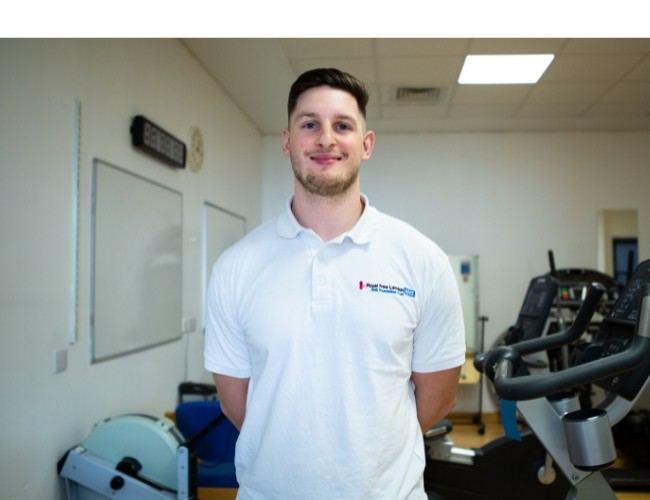Dietitians interpret the science of nutrition to improve health and support the treatment of diseases and conditions, for inpatients and some outpatient services.
They support decision-making and the management of nutritional support such as tube feeding and parenteral (non-oral) nutrition.
Dietitians critically appraise evidence and research to inform their advice, and provide education and training to healthcare professionals.
They provide practical, personalised advice to patients and carers for dietary interventions such as exclusion diets and nutritional supplementation.
Their expertise forms an important part of patient rehabilitation, as this is often a process that needs special dietary input, especially for those with a reduced ability to chew or eat food due to illness, swallowing problems or tube feeding.
The dietetics team at the Royal Free Hospital are involved in research, quality improvement and service development projects.
From post-registration qualifications to recognised supplementary prescribers, their involvement in these activities enables them to provide improved care for patients.
Outpatient referrals
Referrals are only accepted from Royal Free London consultants.
At Barnet Hospital and Chase Farm Hospital referrals are accepted via the electronic patient record (EPR). At the Royal Free London, referrals are accepted via email to the dietetics administration team.
Inpatient referrals
Inpatient referrals at the Royal Free Hospital can be made via EPR.
Click the links below for more information you may find useful:
Royal Free Hospital
Dietitians at the Royal Free Hospital work closely with other medical and therapy professionals to provide specialist dietetic input into the following areas.
Oncology dietitians at the Royal Free Hospital work closely with other multi-disciplinary professionals to provide specialist outpatient support.
Critical care dietitians focus on optimising the nutritional care of patients during their life-threatening illness or injury.
They ensure patients receive the right amount of nutrition, at the right time and in the right way to promote recovery.
Patients and their families are supported during their time on the intensive care unit and are also given advice on eating and drinking well once discharged.
Diabetes dietitians work as part of a wider multidisciplinary team to provide patient-centred care to optimise blood glucose control and improve general health.
The team, based in the diabetes clinic on the third floor of the Royal Free Hospital, support diabetes technology including pumps and sensors, and they work with patients to optimise use of these technologies.
Your first appointment
At an initial appointment, the team will assess your glucose control and discuss diet in relation to your diabetic medications.
They will then work with you to make diet/medication changes to optimise your diabetes control, with any follow-up appointments agreed as they're needed.
- Find out more about the Royal Free London's diabetes service for adults, and diabetes service for children and young people.
Our specialist renal dietitians support patients with chronic kidney disease (CKD) from the early stages to dialysis, guiding patients to make dietary changes to help manage their condition.
Dietary advice is individually tailored based on many factors including the stage of CKD, blood test results, nutritional requirements, a person's usual diet and personal circumstances.
Your renal dietitian will work with you and your family, nurses and doctors. Advice may change as your condition changes.
For outpatients, dietitians see those patients whose care is under a Royal Free London renal consultant. We unfortunately do not accept referrals from general practitioners (GPs) or from patients directly.
Renal dietitians at the Royal Free Hospital work closely with other multi-disciplinary professionals to provide specialist outpatient input in the following stages of chronic kidney disease:
- haemodialysis
- peritoneal dialysis
- low clearance
- general nephrology
- transplant
Our dietitians who work in the nutrition team to provide parenteral nutrition as part of a wider multidisciplinary team with a pharmacist, nutrition nurse and nutrition consultant.
They carry out three ward rounds each week to assess and review those who need nutritional support via parenteral nutrition.
The team’s main aim is to help to support patients nutritionally whether they're suffering from a poor appetite, have recently lost weight, or are unable to eat and drink orally due to other issues.
They ensure our wards are stocked with a variety of snacks that are available 24/7, and there are different menu choices to choose from for your meals.
These include a kosher menu, a halal menu, a general menu and an à la carte menu, as well as many more.
Referrals are made to the dietitian by other staff members through our electronic system.
The team's other specialities are:
- gastroenterology (including coeliac disease and inflammatory bowel disease)
- health services for elderly people
- hepatobiliary and pancreatic
- neurology
- paediatrics
- surgery (including general, colorectal and gynaecology)
- paediatrics
- gastroenterology
 Translate
Translate



